Well, I finally decided to do something about that annoying exhaust leak, so I tore down the van and found I have a cracked manifold and a broken exhaust stud. I know some of you have asked about removing broken exhaust studs in the past, so I thought I'd do a write-up showing you how I do it. Due to years of experience as an aircraft toolmaker, I have developed a unique and unorthodox method for drilling out broken studs. Unfortunately there is some special and possibly hard to find equipment I use, but hopefully seeing the way I do it may give you ideas of your own. All the special bushings I used for this write-up were purchased at Boeing Surplus in Renton, WA and cost about a buck or 2.
Okay, 1st step is to clean the area around the broken stud with a strong chemical like carb cleaner, brake clean, acetone, or any cleaning chemical similar in strength.
I need to anchor something to the head to keep my drill bit steady and on-target. For this job I have chosen to use a 1/2" ID knurled tooling bushing. The next step is to find a way to positively index the bushing to the center of the hole. For this I have chosen to use an old exhaust manifold stud with tape wrapped around it.
Okay, so now I have the bushing and a way to center it, I need a way to temporarily secure it to the head. Super glue and Loctite #7452 Accelerator are great for this. With one hand I locate the bushing / stud to the desired position, and with the other hand I apply super glue between the head and the bushing. Now I grab the accelerator spray and spray it onto the exposed glue. Accelerator spray is awesome stuff. It chemically activates the superglue causing it to cure instantly.
Within seconds I can let go of the bushing and it will stay put all by itself! (sorry there's not a picture of the gluing and accelerating, I was using both my hands at the time)
Okay, so the glue may hold the bushing and the stud, but that's about all it will do. What I need now is something to beef it up. Bondo is just the ticket for this job.
Okay, here's a picture of the bushing secured with Bondo. The Bondo does a couple of things. It gives me something to grab onto and it mates perfectly with the irregular surface of the head. While drilling I can push against the bushing and it will guide my drill bit straight. Even if the bushing breaks off the head during drilling (and quite often they will), It still gives me a reference point and I can push the bushing flat with one hand while I run the drill with the other.
Now that the bushing is secure, I need to drill a pilot hole in the broken stud. To keep the 1/8" drill bit centered, I am going to use a 1/8" drill bushing. I didn't have a bushing that went from 1/8" up to 1/2", so I simply pushed 2 bushings together to do the job.
Just in case the stud is loose in the hole, I don't want the drilling action to drive it deeper. For this reason I am going to use a 1/8" reverse ground drill bit for drilling the pilot hole. Sometimes you get lucky and while drilling, the broken bolt or stud will pop right out. Wishful thinking? We will see.
Next I push the pilot bushing into the knurled bushing and start drilling. In this case, I am going to drill all the way through the broken stud. You will see why after a few more steps. Tip: Be sure to lubricate your drill bit with cutting oil, or you won't get too far.
Okay, now for the big guns. I have here a reverse ground 1/4" drill bit and a drill bushing with a 1/2" OD and a 1/4" ID.
Now to drill the 1/4" hole. My goal here is to drill the hole about 1/4" to 3/8" deep. This will be enough for my easy-out to grab onto the broken stud. No need to go any further.
So now the hole is drilled (about 3/8" deep) there is no longer any need for the drill bushing. To remove, I simply hit it with a hammer and break it off.
Here's the finished hole.
It's time to break out the easy-out kit. IMO, Snap-on (or Blue Point) makes the best easy-outs. Those spiral ones are a joke. The Snap-on ones may cost a bit more, but in my opinion you can't afford not to have them.
I have selected the 1/4" extractor.
A 1/4" hole is a tight fit for the extractor, but it can be driven in with a hammer. I drive in all the way to insure good surface contact.
Now the extractor nut can be slid on.
The next 2 pictures need no explanation.
Remember the step of drilling the pilot hole completely through? Here's why.
Now for the best picture of them all. Tim
Note: Exhaust manifold = Toyota Part #17141-72010 $122.34, Stud = Toyota Part #90116-10063 $.80, Nut = Toyota Part #90179-10051 $1.24, Valve Grind Gasket Kit = Toyota Part #04112-73035 $92.71.
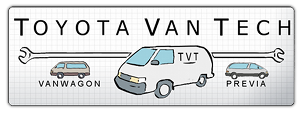



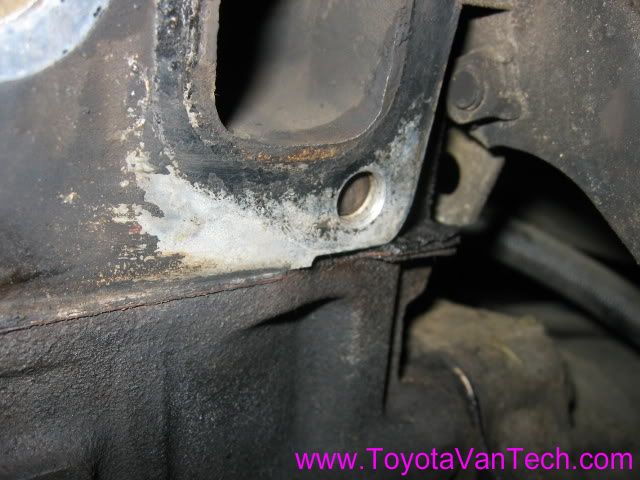
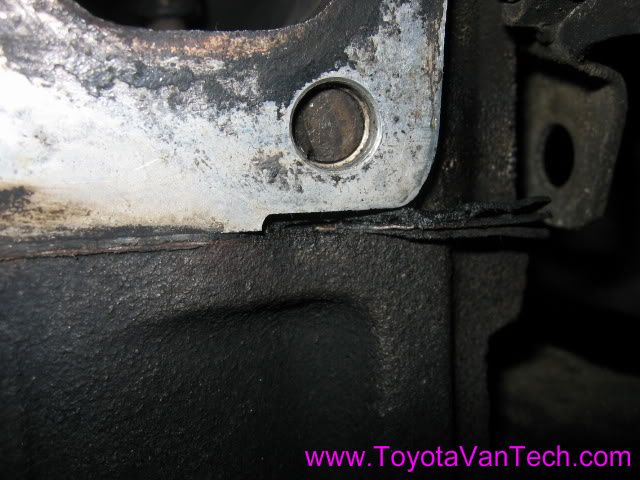
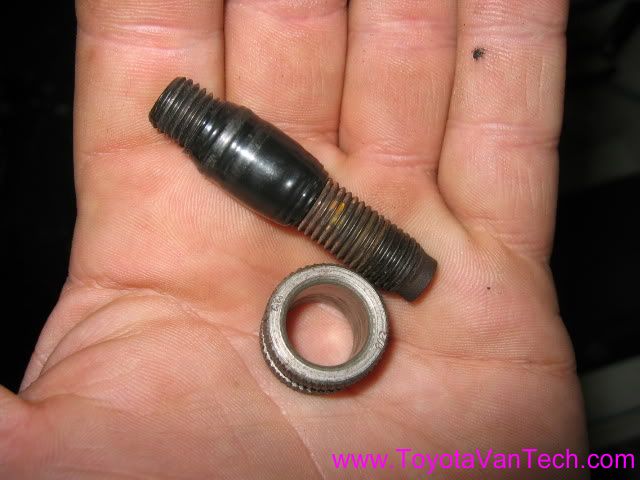
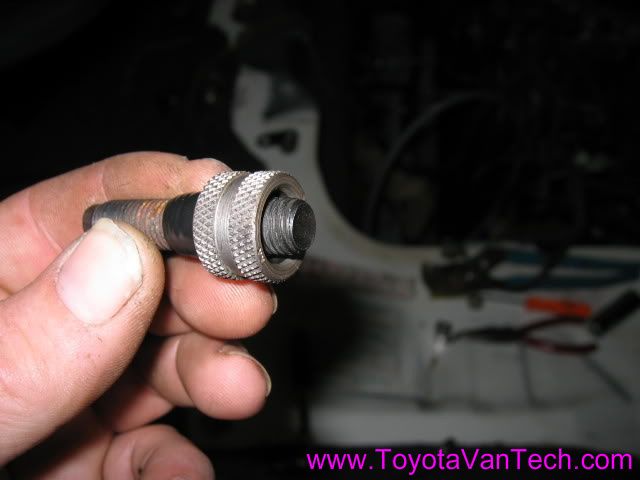
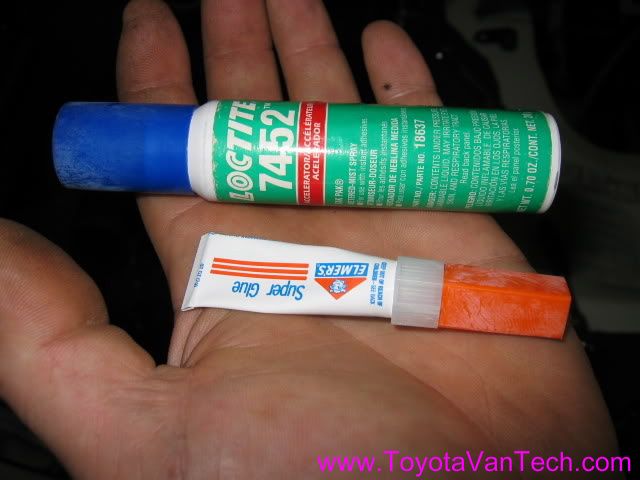
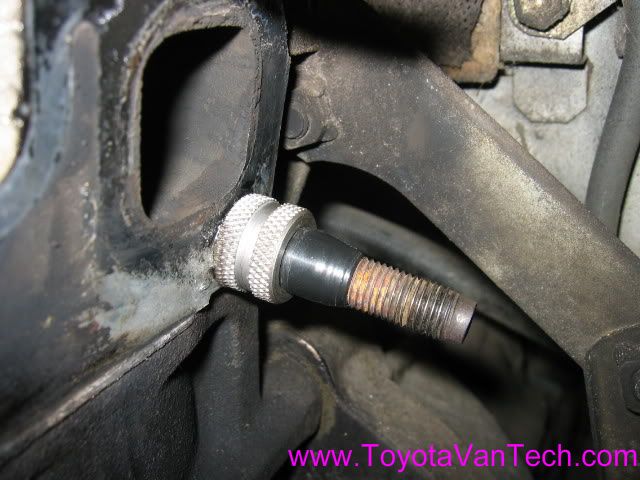
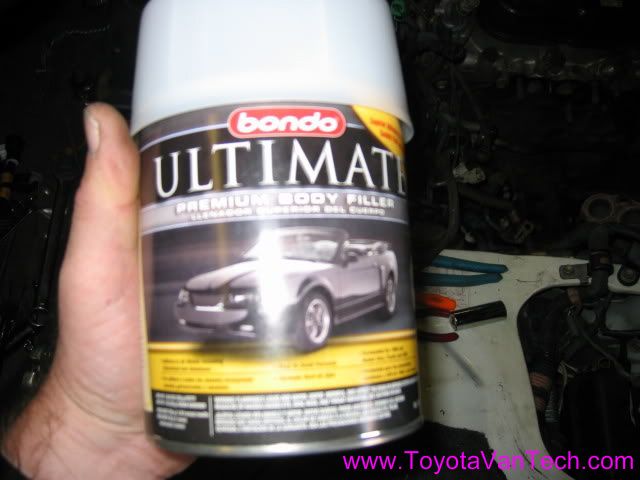
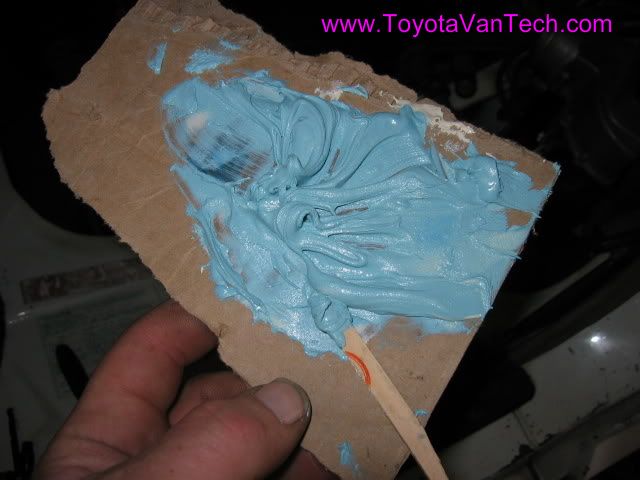
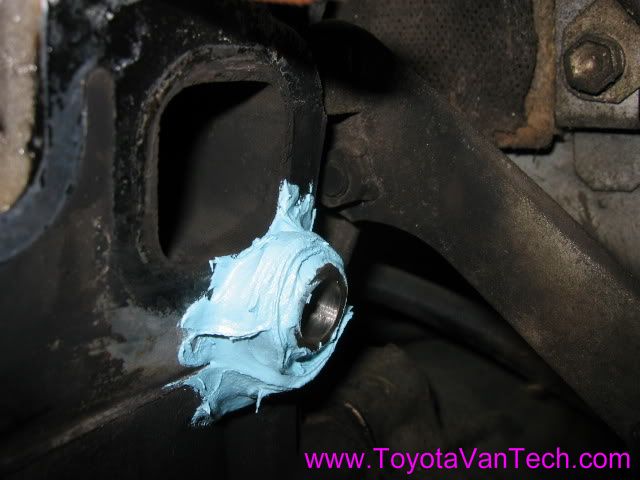
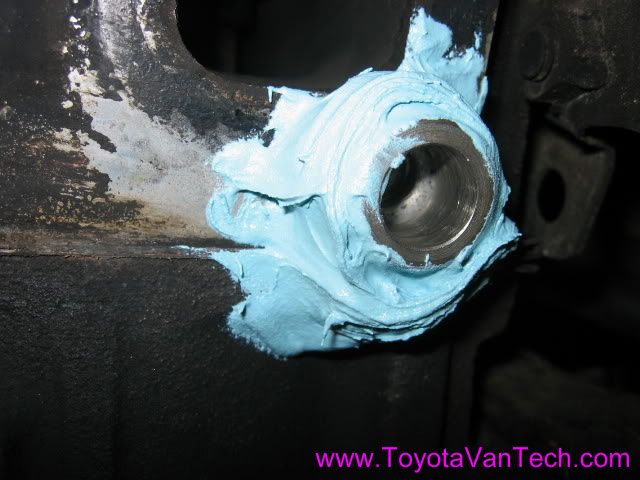
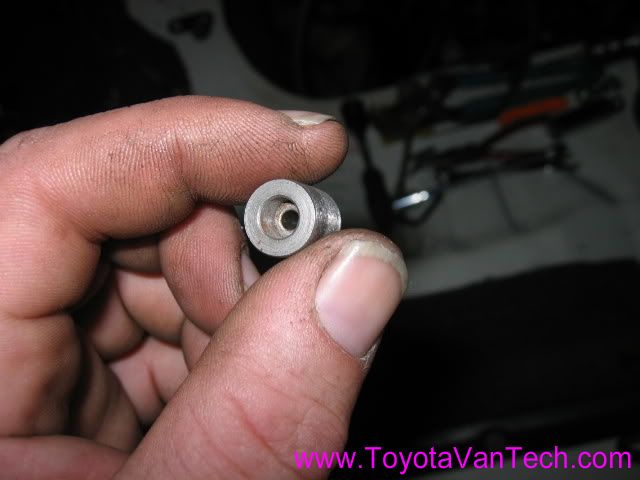
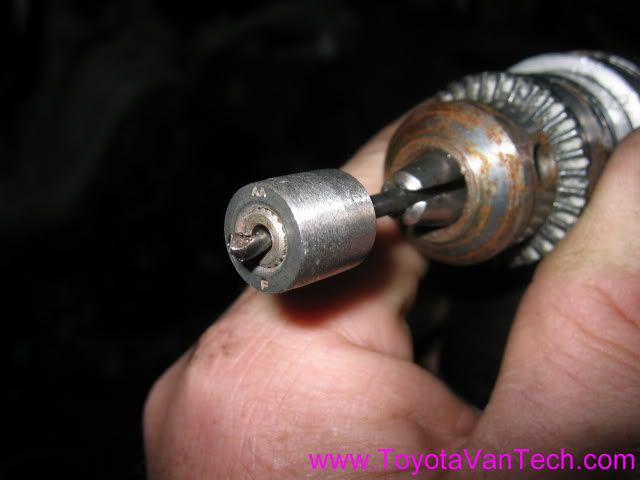
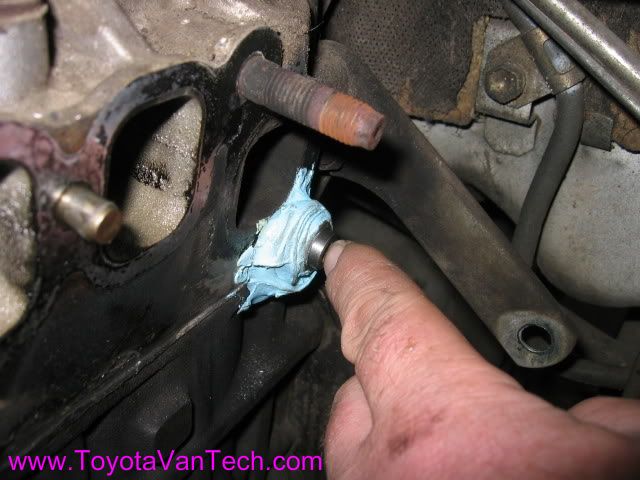
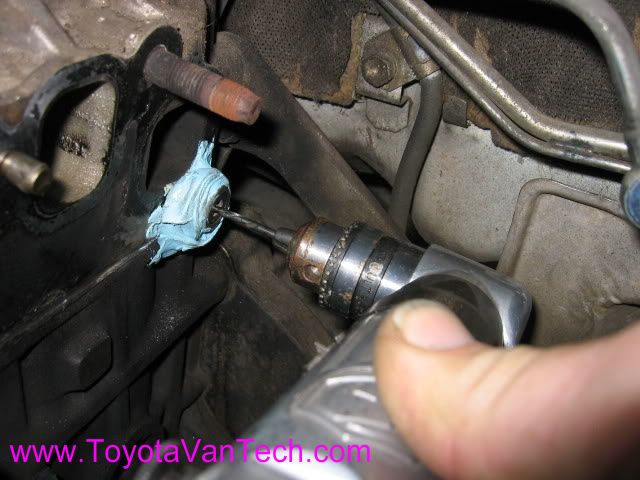
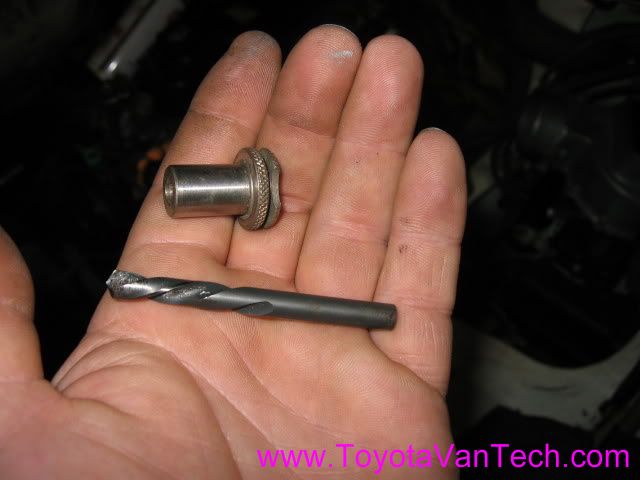
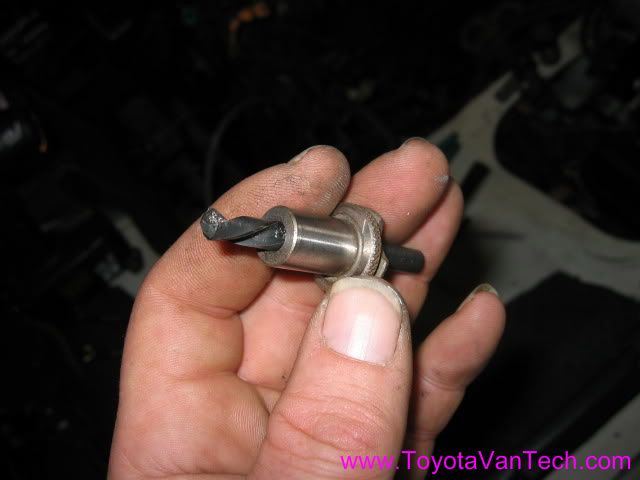
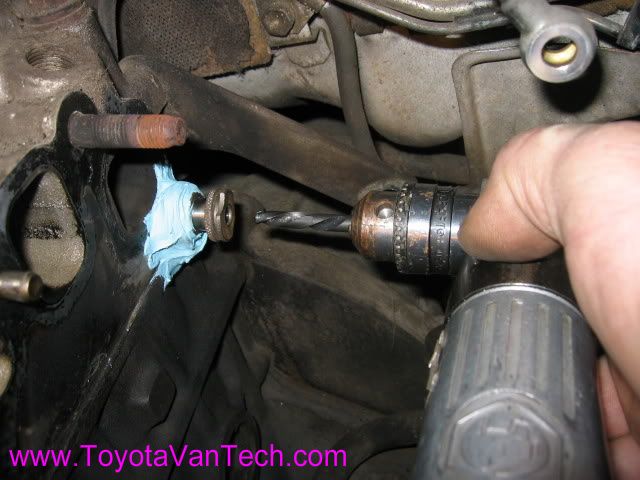
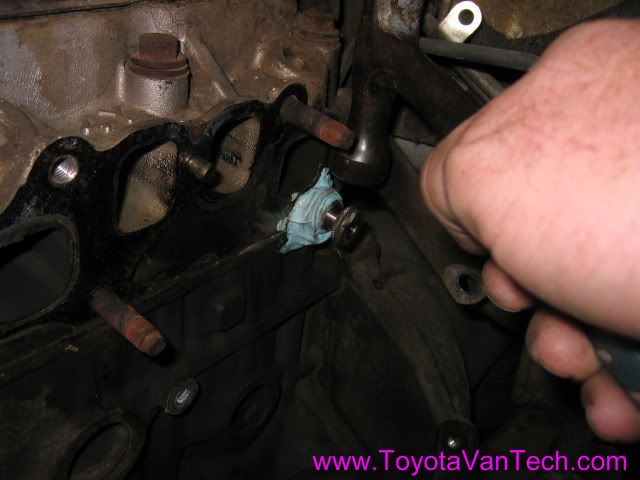
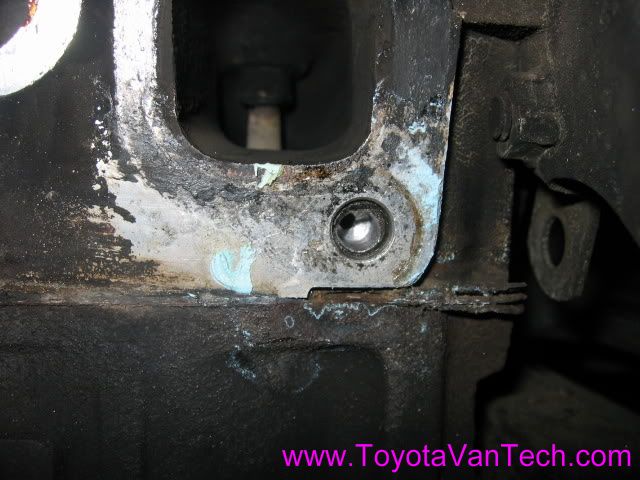
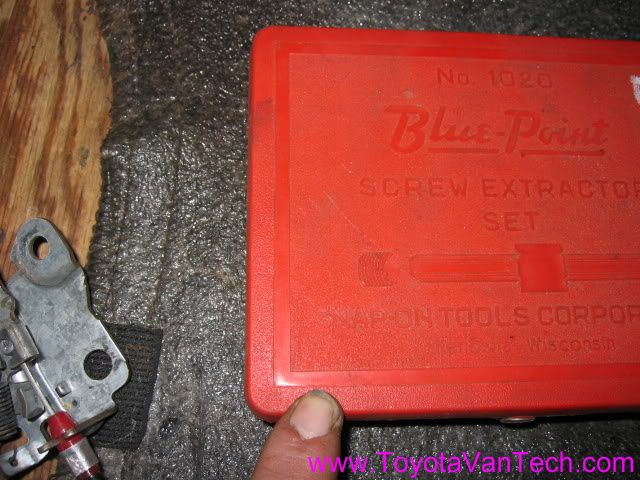
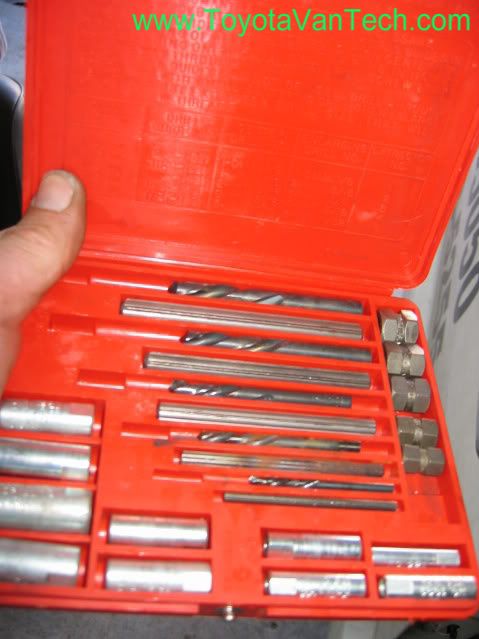
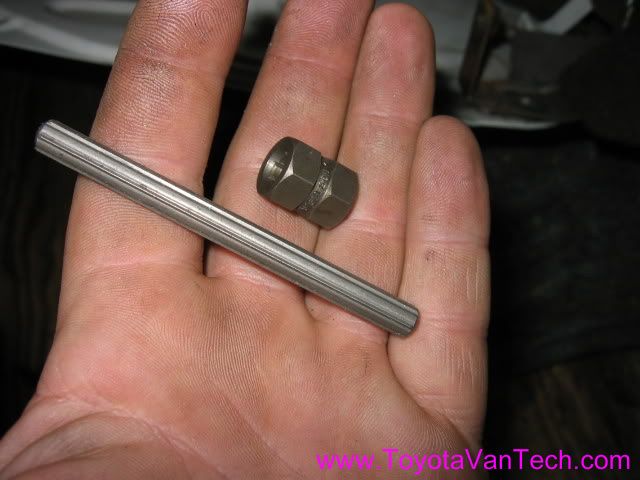
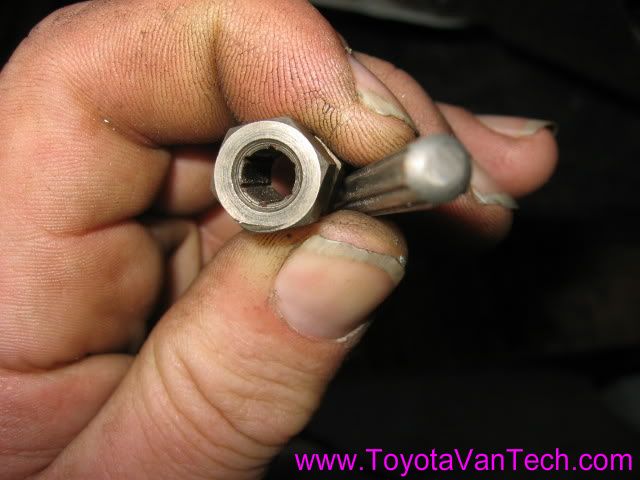
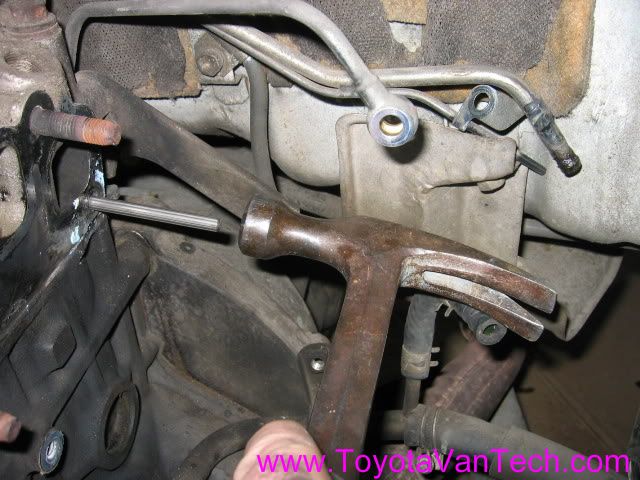
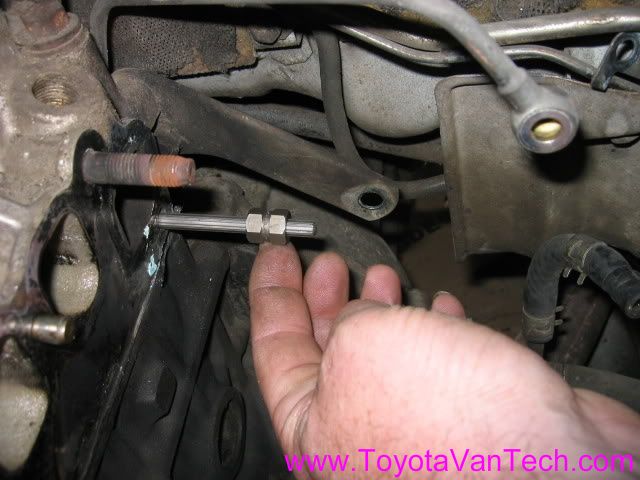
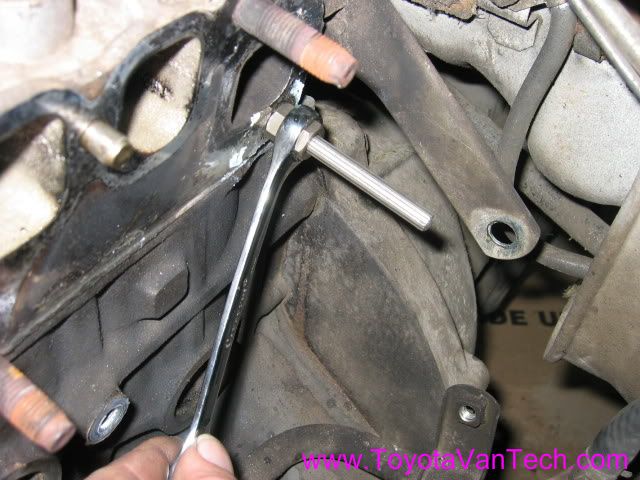
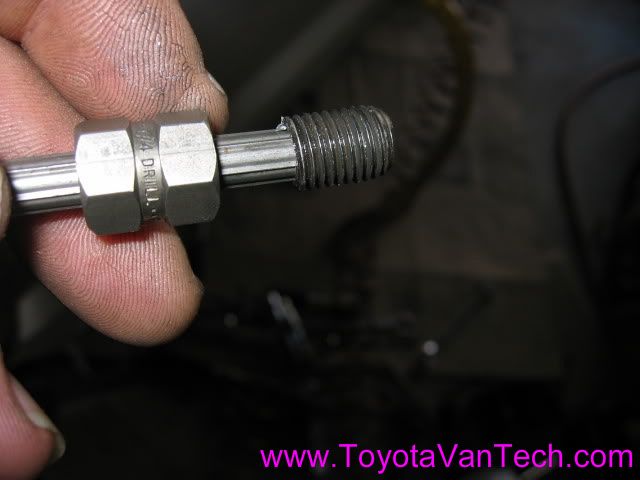
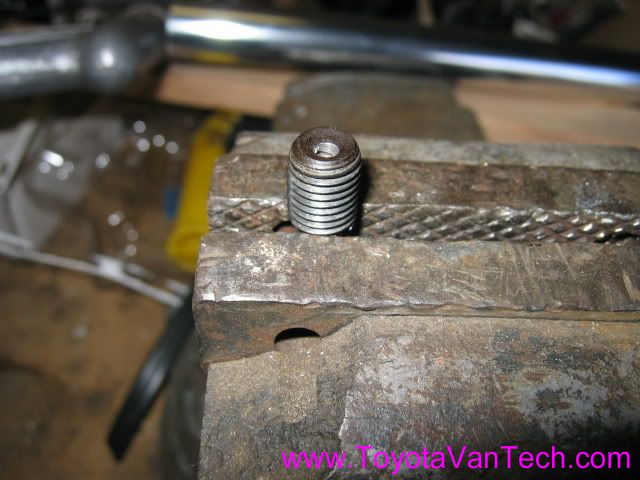
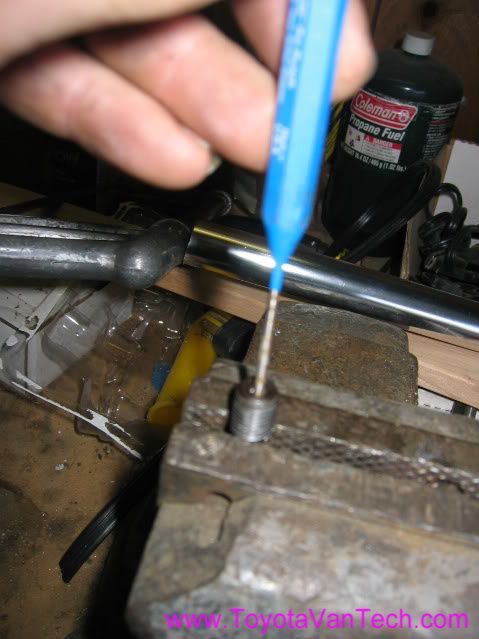
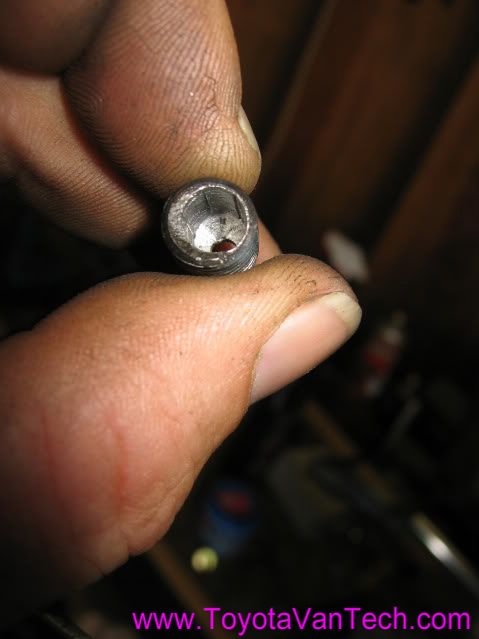
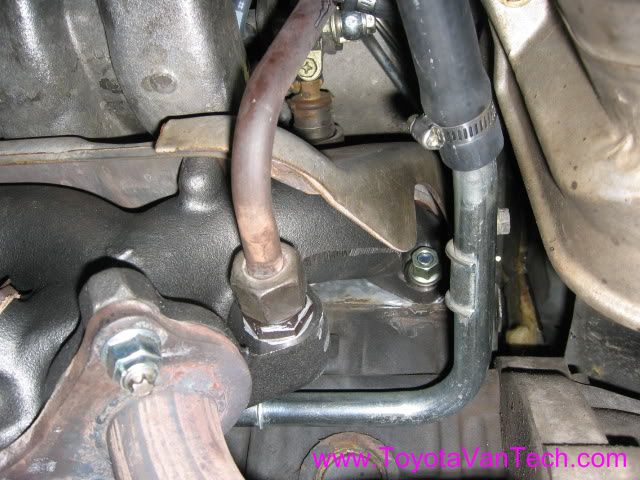


 Reply With Quote
Reply With Quote

 . BTW, whenever I see things like that at the pick-n-pull I take them because I know they're next to impossible to find otherwise. Tim
. BTW, whenever I see things like that at the pick-n-pull I take them because I know they're next to impossible to find otherwise. Tim

